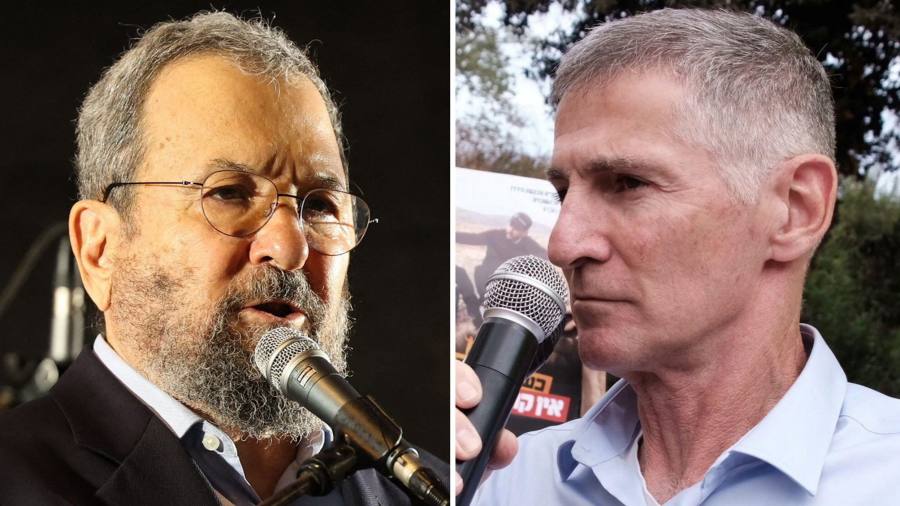Receive free Israel updates
We’ll send you a myFT Daily Digest email rounding up the latest Israel news every morning.
Two prominent critics of the Israeli government’s plans to overhaul the judiciary are being investigated by a law enforcement task force set up by Itamar Ben-Gvir, the extreme-right national security minister.
Ehud Barak, a former prime minister, and the former leftwing MP Yair Golan have both called for non-violent resistance to plans pushed by Benjamin Netanyahu’s government to rein in the powers of the judiciary, which have sparked one of the biggest waves of protests in Israel’s history.
Barak, prime minister from 1999 to 2001, dismissed the probe as “an attempt at political intimidation of the inferior variety practised by rotten regimes”. “I have news for Netanyahu and Ben-Gvir: we are not afraid of anyone or anything,” he wrote on Twitter.
Golan, who was an MP for the leftwing Meretz party until last year’s parliamentary election, said the task force had not been in touch with him and that “therefore from my perspective, it doesn’t exist”.
“I’ll be proud to be investigated if it’s needed,” he said. “There’s a civilian duty to resist a government that tries to ruin our democracy.”
According to the Haaretz newspaper, the police will determine whether the comments under investigation could amount to sedition. If it decides that they could, prosecutors will then have to decide whether to file an indictment.
The investigation into Barak and Golan comes as the battle over the judiciary moves back to the forefront of the Israeli political agenda, after a three-month lull during which government and opposition leaders tried unsuccessfully to thrash out a compromise.
Proponents say that the proposals — which include giving the coalition and its allies greater control over the appointment of judges and limiting the top court’s ability to strike down legislation — are needed to rein in an activist judiciary that has used powers it was never formally granted to push a partisan leftwing agenda.
But critics, including security officials, former central bank governors, tech executives and the political opposition, see the proposals as a power grab that would undermine checks and balances, pave the way for the infringement of minority rights and damage the economy.
Netanyahu put the government’s proposals on ice in March after the mass protests against them escalated into a brief general strike. But after the compromise negotiations with the opposition faltered, he said last week that the government would once again move ahead with its plans.
Since then, it has begun advancing another element of its overhaul, which would limit the ability of Israel’s top court to use the criterion of “reasonableness” to block government actions.
The move has sparked condemnation from opposition politicians, and leaders of the protest movement have vowed to escalate their demonstrations again in the coming days, including by holding a big protest at Israel’s Ben Gurion international airport on Monday.
Military reservists, who were a prominent voice in the protests earlier this year, have also stepped up their criticism. On Wednesday, 100 air force reservists warned they would refuse to report for reserve duty if any law curbing judicial independence is passed.
Read the full article here




